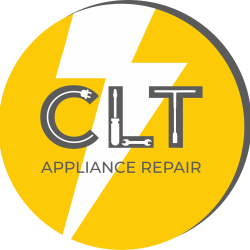When it comes to outfitting your home with the right appliances, one of the most crucial decisions you’ll face is whether to choose gas appliances or electric appliances. From stoves to water heaters, these two options each come with their unique advantages and challenges. But which one truly makes the most sense for your home?
The truth is, there’s no one-size-fits-all answer. The choice between natural gas appliances vs electric in Charlotte NC depends on multiple factors. Understanding these variables can help guide you toward making the best decision for your needs. Here, we break down the key aspects of gas vs electric appliances and help you make an informed choice.
Energy Efficiency and Cost: What’s Really at Stake?
One of the most significant factors is energy efficiency and cost. Generally, gas appliances tend to offer lower operating costs, especially for heating applications. Natural gas is typically more affordable than electricity, with residential natural gas costing $12.09 per MMBtu, compared to electricity, which costs $41.79 per MMBtu.
- Gas Stoves vs Electric Stoves:
On average, a gas stove can cost 10-30% less to operate than an electric stove. This is due to the efficiency of gas when used for heating and cooking. Gas stoves also offer the advantage of immediate heat, giving you better control over temperature adjustments.
- Electric Appliances Advancements:
However, electric technology has made remarkable strides. Induction cooktops and heat pump systems now offer energy-efficient alternatives. In some cases, these general electric appliances can even have lower operating costs than their gas counterparts, especially when considering factors like maintenance and longevity.
While gas appliances might be cheaper in many cases, electric appliances are catching up quickly. It’s important to analyze your local energy prices and the specific technology you’re choosing to understand the true cost.
Environmental Impact: Which Is Better for the Planet?
The natural gas vs electric appliances debate also revolves around environmental impact. Gas-powered appliances release carbon dioxide (CO2) and other pollutants such as carbon monoxide and methane, which contribute to air pollution and global warming. Methane, for instance, is 86 times more potent than carbon dioxide as a greenhouse gas.
In comparison, electric appliances are often viewed as more environmentally friendly especially when powered by renewable energy sources. As the grid becomes greener and more homes utilize solar or wind power, the carbon footprint of electric appliances continues to decrease.
- Gas Appliances:
While natural gas appliances are more energy-efficient in many cases, they still produce more pollutants than electrical ones. However, they can lower household emissions by 17% compared to homes with inefficient electric appliances.
- Electric Appliances and Renewable Energy:
Such appliances powered by renewable sources like solar or wind energy offer the most environmentally-friendly option. As the electric grid becomes cleaner, these appliances become increasingly sustainable.
Performance and User Preferences: What’s Right for You?
When it comes to gas appliances, many users swear by the instant heat they provide. This is particularly true for gas stoves, where temperature adjustments are almost immediate. For chefs and cooking enthusiasts, gas offers precision and control that electric stoves simply can’t match. However, there’s a shift toward electric appliances, especially induction cooktops, which are now considered the most energy-efficient, fastest, and cleanest method for cooking.
- Gas Appliances: Gas stoves heat up quickly and give instant feedback to temperature changes, making them ideal for home cooks who prefer control.
- Electric Appliances: Induction cooktops have revolutionized cooking. They offer high-speed cooking with minimal heat loss, making them the best-performing appliance option for some. General electric appliances, like air conditioning systems and dryers, also offer better performance in terms of consistency and longevity.
Safety Considerations
Safety is always a top priority when choosing appliances, and this is where electric appliances generally have an edge. Gas stoves, while popular, come with some serious risks such as carbon monoxide poisoning, gas leaks, and fire hazards. Recent studies have even shown that gas stove use is linked to a higher rate of childhood asthma.
- Gas Appliances: Gas appliance repair can sometimes be more critical due to the risk of leaks and other issues. Proper maintenance is crucial to ensure they are running safely and efficiently.
- Electric Appliances: While electrical appliances still come with risks, they are generally safer. With no combustion involved, the risk of carbon monoxide poisoning or gas leaks is eliminated, making electric appliances the safer option in many cases.
Regional Differences
In Charlotte, North Carolina, there’s a clear preference for electric appliances with 89%. This stands in contrast to places like California, where gas appliances are more widely used, with about 70% of homes opting for gas stoves. The regional differences can be attributed to factors such as the availability of natural gas and the development of energy infrastructure in these areas.
Despite the dominant presence of electric appliances in Charlotte, some local retailers still offer both gas and electric options for consumers. When making decisions about appliances, it’s important for Charlotte residents to consider local energy trends and the type of infrastructure available in their area.
Trends in Gas vs Electric Appliances
There is an increasing push for electrification as a part of efforts to reduce emissions and transition to cleaner energy sources. Many governments and local jurisdictions are exploring regulations around gas appliances, particularly gas stoves, in favor of electric alternatives.
As electric appliances continue to evolve and become more energy-efficient, the balance is gradually shifting toward electrification. With improved technologies and greater environmental awareness, it’s clear that electric appliances are gaining ground.
So, What’s The Conclusion? Gas Appliances or Electric Appliances?
In the end, whether you choose natural gas appliances vs electric or gas appliances vs electric appliances depends on several factors: your local energy prices, environmental priorities, performance needs, and safety concerns. While gas appliances remain a popular and cost-effective choice for many, electric appliances are quickly closing the gap, offering energy efficiency, lower emissions, and better performance.
If you’re considering a switch or just curious about how general electric appliances compare to gas appliances, keep in mind that every home and situation is unique. The key is to assess your needs whether it’s appliance repair Charlotte NC, upgrading to more energy-efficient systems, or transitioning to greener alternatives, and make the choice that works best for you.
At the end of the day, the decision between gas appliances and electric appliances will be a balance between cost, performance, and environmental responsibility. So take the time to weigh your options and choose wisely.
Need to repair or replace your appliances in Charlotte?
CLT Appliance Repair offers reliable, professional service for all your gas and electric appliances. Contact us today for a consultation and get your appliances working like new!
Frequenlty Asked Questions
Q1: Which is more cost-effective in Charlotte, NC: gas or electric appliances?
Gas appliances are generally more cost-effective due to lower natural gas prices.
Q2: Are electric appliances more environmentally friendly than gas appliances?
Yes, especially when powered by renewable energy sources.
Q3: Which type of stove is better: gas or electric?
Gas offers better control, but induction electric stoves are faster and more efficient.
Q4: Are electric appliances safer than gas appliances?
Yes, because they eliminate risks like gas leaks and carbon monoxide.
Q5: What is the current appliance trend in Charlotte, NC?
Electric appliances dominate, used in 89% of homes.
Read More: Common Induction Cooktop Problems & Solutions
Author

- John Bennett
- John Bennett is a seasoned appliance repair specialist at CLT Appliance Repair, where he brings over a decade of technical expertise and a strong commitment to customer satisfaction. With a background in electrical and mechanical systems, John has built a reputation for reliable, efficient, and honest repair services across a wide range of household appliances-including refrigerators, washing machines, ovens, and more.







